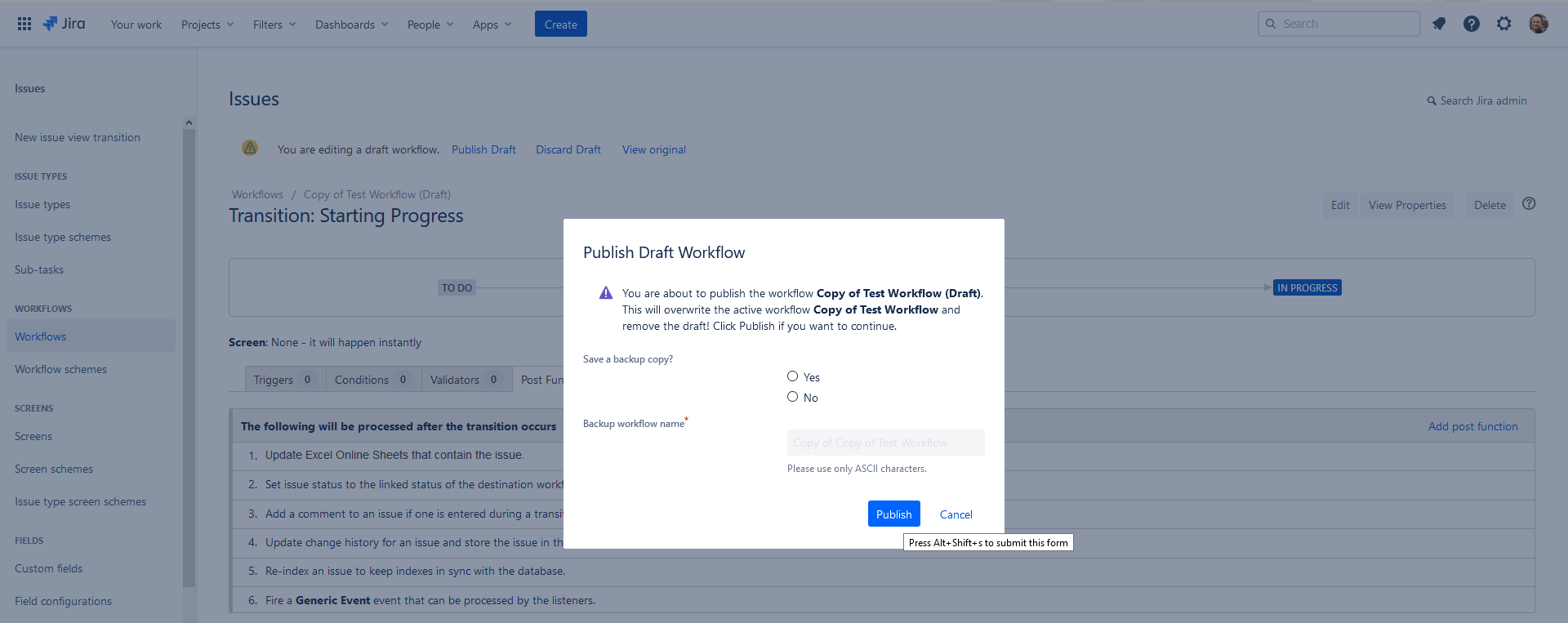Jira Add-On Configuration
The Jira add-on allows an administrator to control some features that affect the add-on's behavior. These configuration options are available from the add-on's Configuration screen, and described below.
Webhooks
This section allows an administrator to toggle which Jira events will trigger updates to real-time update Excel Online Sheets. By default, only issue- and worklog-related events are enabled. Most administrators find that the default configuration meets their needs, but there are cases where you may want to enable other webhooks. For instance, if you have an export that should update when a sprint is closed, an administrator would enable the "Sprint Closed" webhook so that your export is updated when the sprint is closed. It is also possible to disable all webhooks if you need to quickly stop updates to all of your sheets.
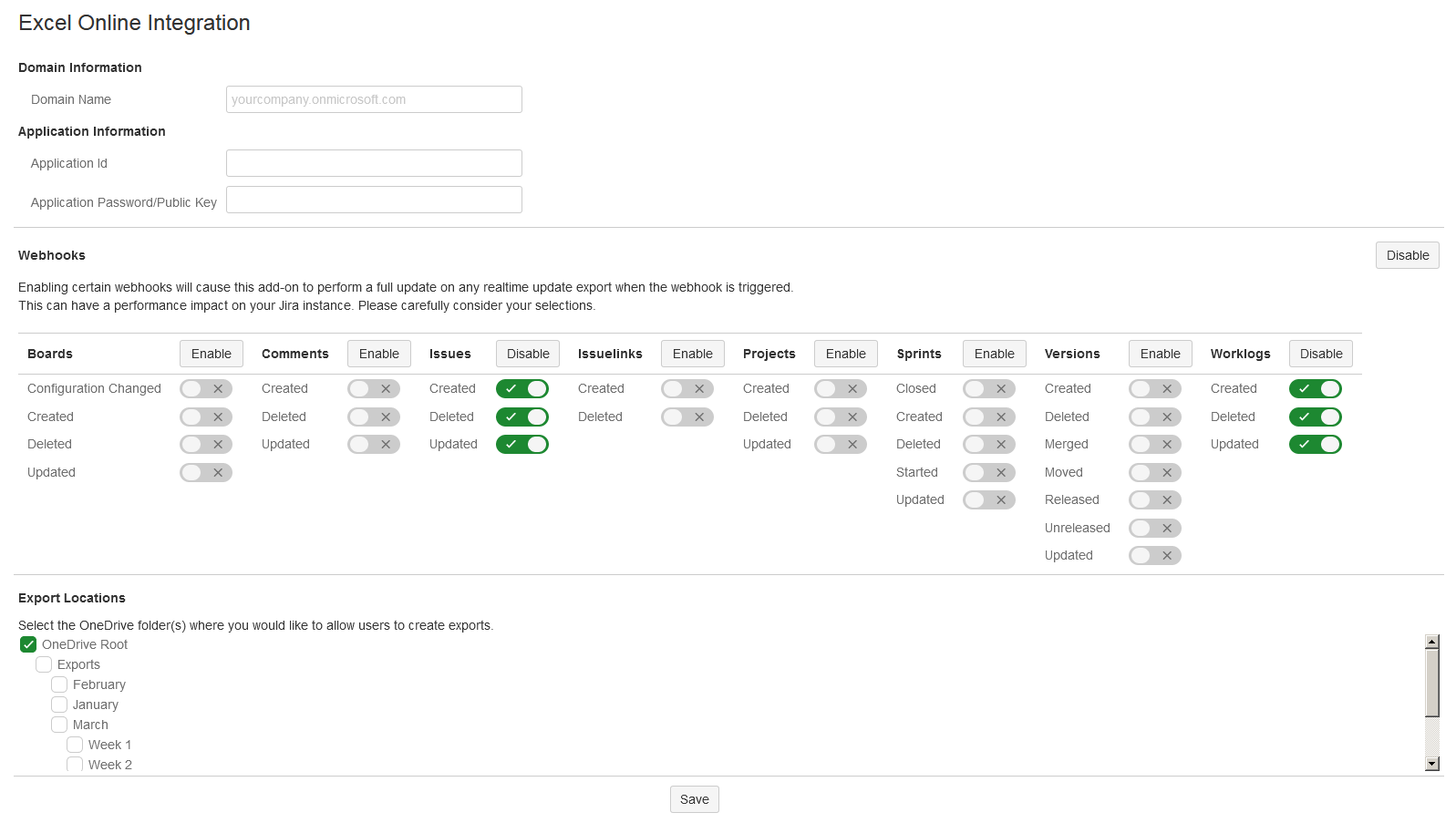
Toggle webhooks as necessary for your goals, and click the Save button to save your new selections. This change takes effect immediately for all sheets.
Realtime-Enabled Projects
This section allows an administrator to define which projects' Jira events will trigger updates to real-time update Excel Online Sheets. By default, every project is enabled. Administrators may find that some projects do not need to update Excel Online Sheets, and disabling those projects here may provide a performance benefit. Jira events fired from issues in projects that are not enabled here, will be ignored. Note that this section and the Jira Add-On Configuration#Webhooks section work together; the add-on will only process enabled events on realtime-enabled projects. Users are still able to export issues from projects that are not enabled here, but changes to issues in those projects will not trigger real-time updates, even if the sheet itself is realtime-enabled.

Issue Key Link
This section allows an administrator to define the hyperlink for issue keys displayed in exports. The default value is View Issue, so that clicking on an issue key in an export will take the user to that issue's View Issue screen in Jira. An administrator can choose the alternative Edit Issue option to load the Edit Issue screen in Jira, or define a custom hyperlink.

Issue Export Limit
This section allows an administrator to set a limit on the number of issues that can be exported to a single sheet. Since larger sheets take more time and resources to generate and update, limiting the number of issues in the sheets can help improve performance. The default limit matches your Jira instance's setting (jira.search.views.max.limit in Jira Server or Data Center, or 1,000 in Cloud). To allow an unlimited number of issues, set this value to -1. Any limit set here applies to all exports created by the add-on.

Additional Worksheet Options
This section allows an administrator to expose additional data export options for users to select on the Export screen. Any options enabled here will appear with checkboxes in the "Additional Worksheets" section of the Export screen, giving the user the option to export additional data to their sheet.

Export Locations
This section allows an administrator to define OneDrive folders where users can store their exports. By default, all exports are stored in the root folder of your organization's OneDrive. To define which folders users may store their exports in, tick the checkbox next to each folder.
Workflow Transition Post Function
Administrators may want to trigger sheet updates only when certain workflow transitions occur, instead of triggering updates every time an issue is created or edited. The add-on exposes a workflow transition post function to accomplish this goal. Since issue fields are typically edited during workflow transitions, we recommend you carefully consider your configuration of workflow transition post functions and how they may overlap with configured webhooks, since they present the possibility of firing multiple update events for a single change.
To configure a workflow transition that will call the post function, navigate to the workflow administration area by clicking on the Gear Icon in the top right, then selecting Issues and selecting Workflows on the left side.
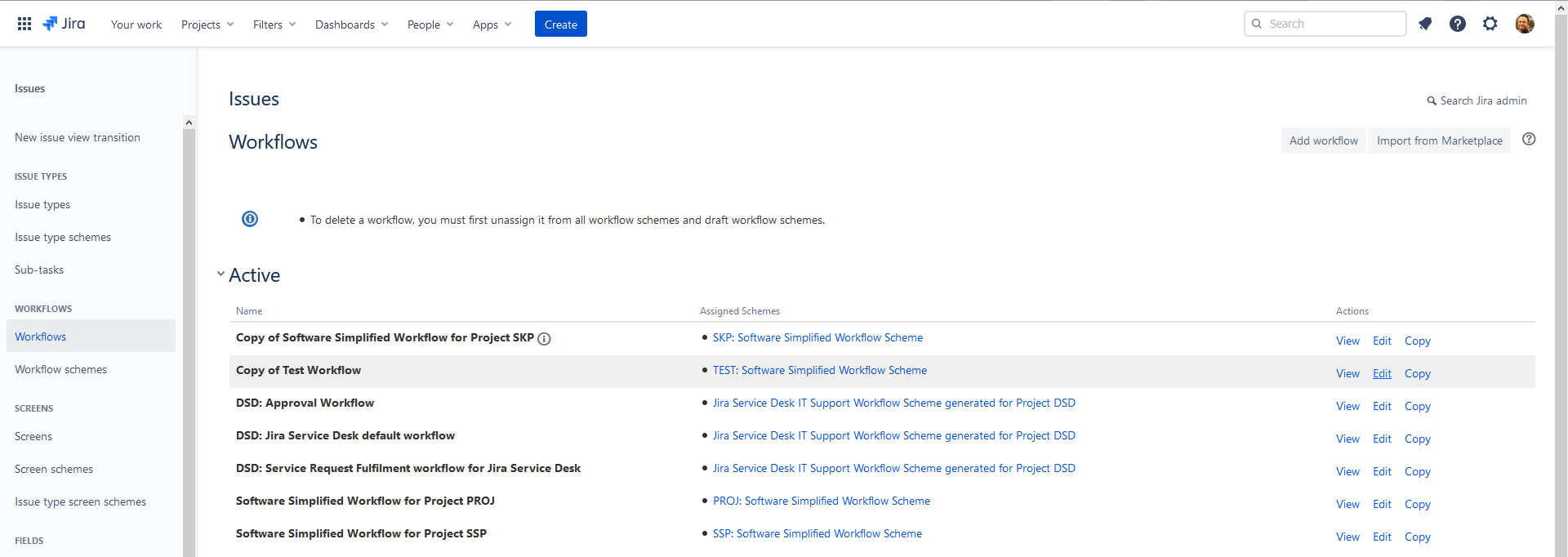
Find the workflow you want to configure, and click the Edit item for that workflow.
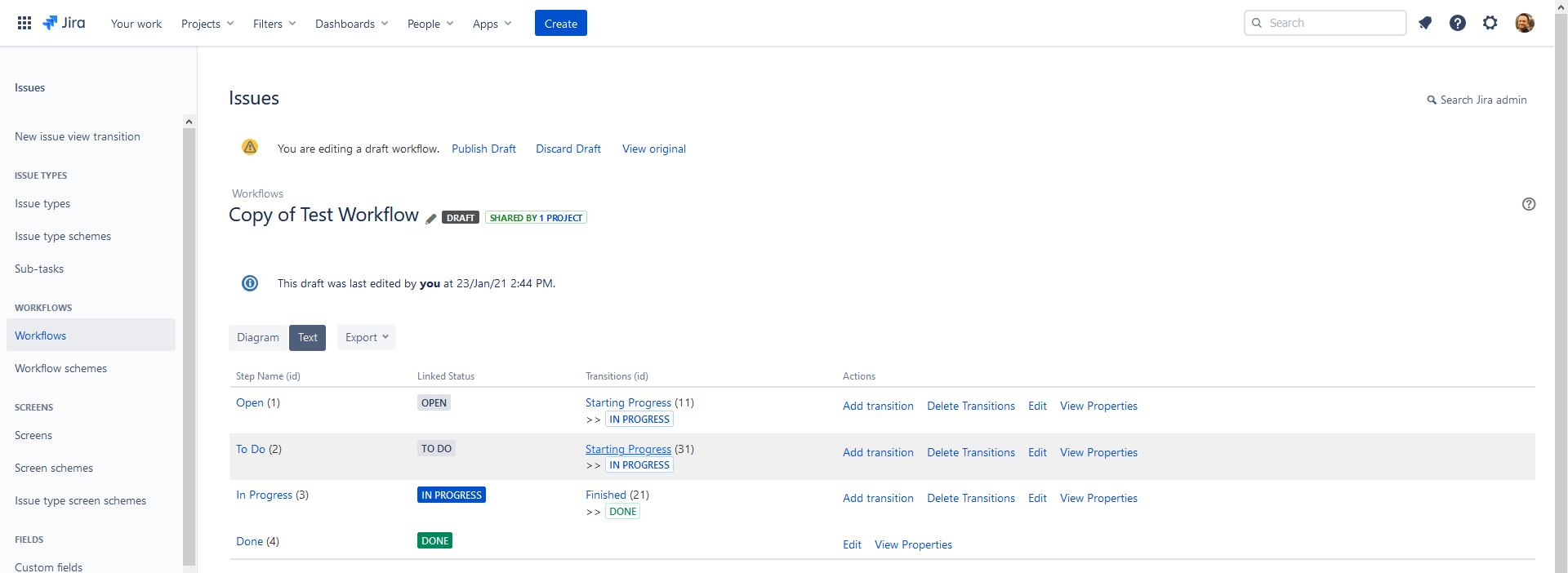
In the workflow edit screen, find the transition you want to configure, and click the transition's name in the Transitions (id) column.
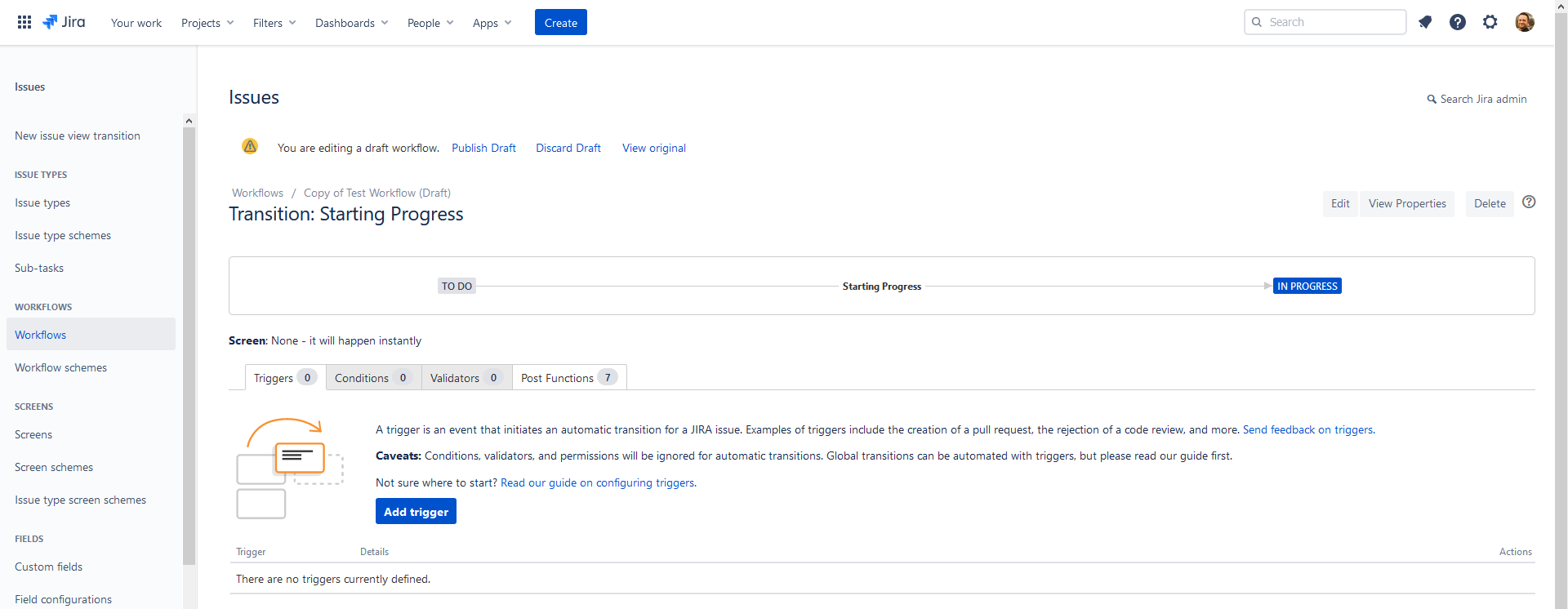
Click on the Post Functions tab for the transition, and then click Add post function.
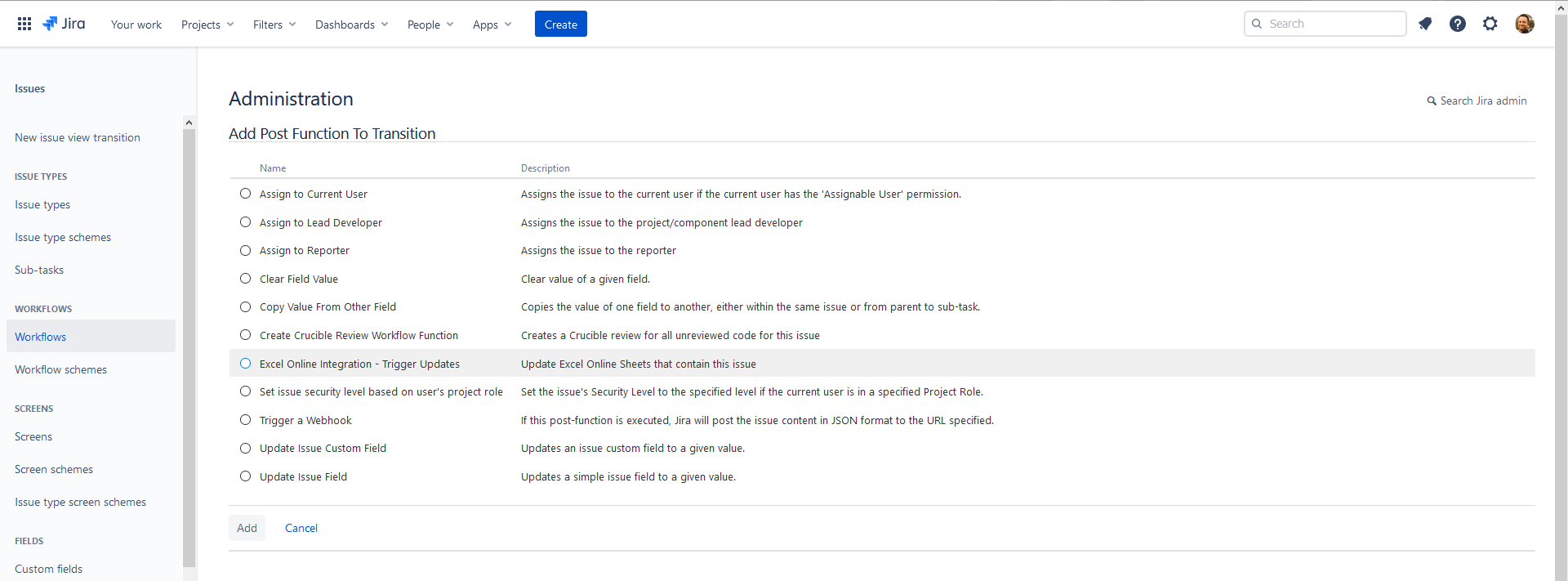
Find the Excel Online Integration - Trigger Updates post function, and tick the radio button next to it, then click Add.

Click through the remaining screens as instructed. When you are finished making changes, click on the Publish Draft item at the top of the screen.
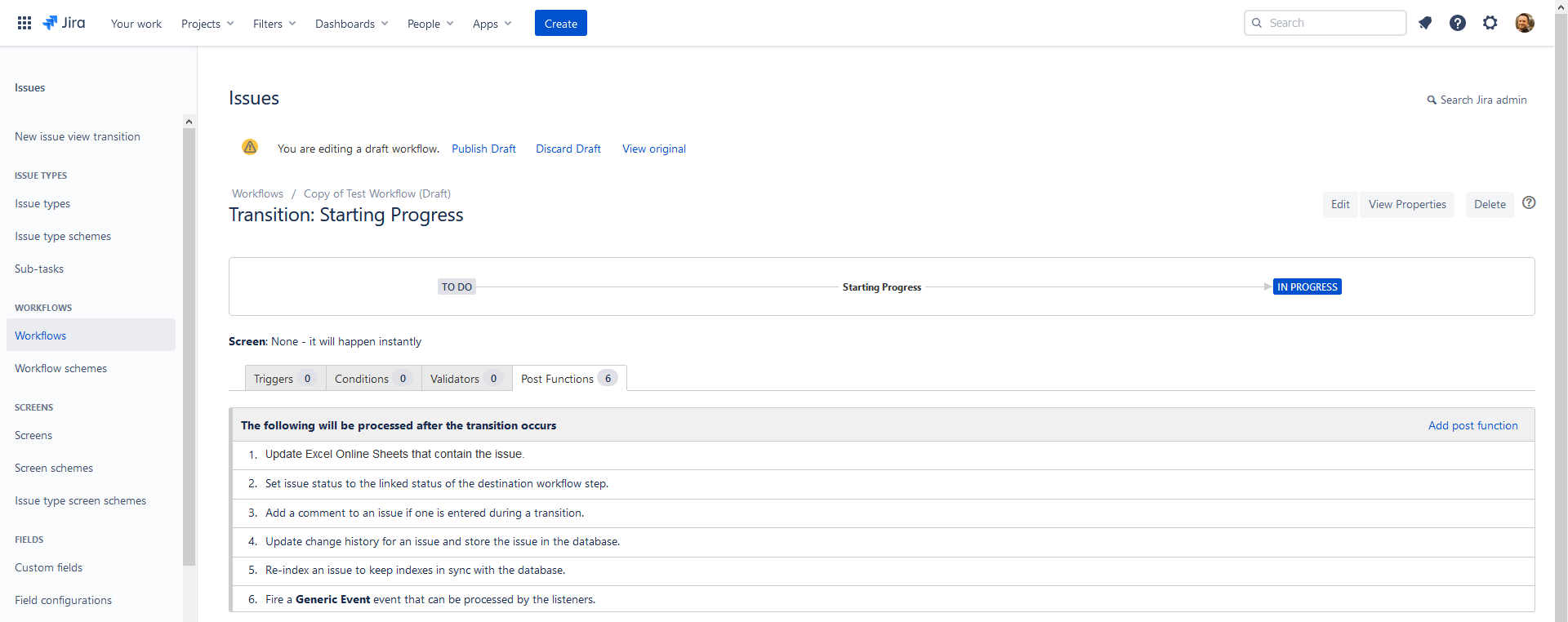
Complete the optional workflow backup steps and click Publish to finish your changes.
